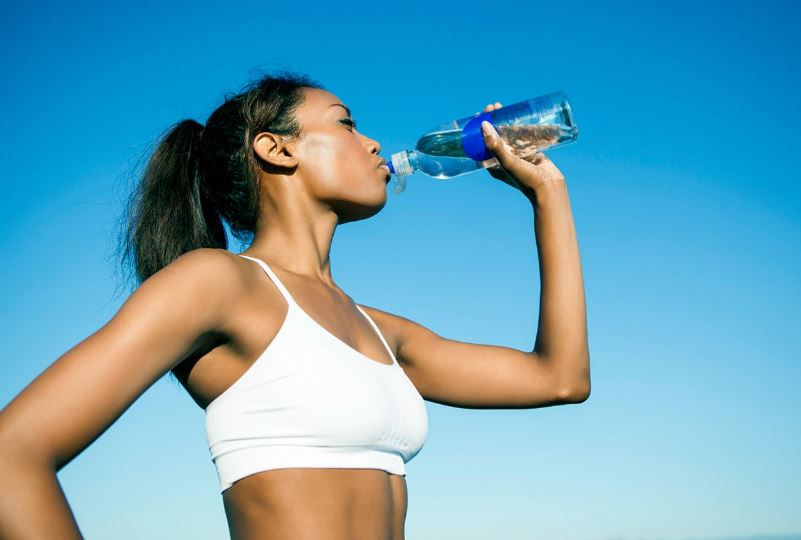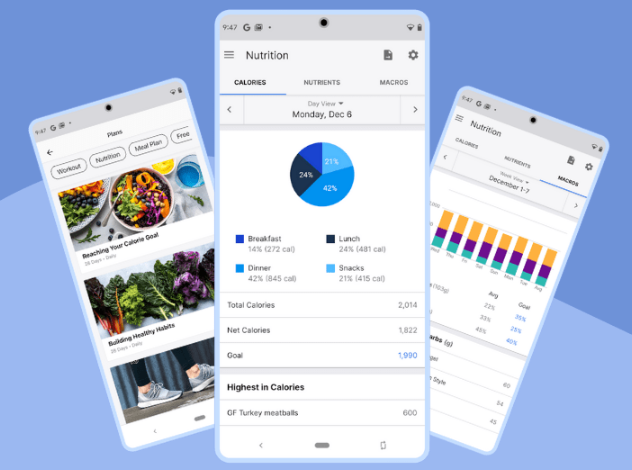7 Things You Can Do Now To Start Your Weight Loss Journey: Advice & Tips
Updated: Apr 26, 2023

Losing weight can be challenging but there are small things you can do each day to improve your health and fitness. Decide what your goal is and be specific. Know what you want, how you are going to get there, and make sure your goal is realistic. Write your goal down, along with the steps that are required to get there and stick to the game plan.
Try implementing one or two steps at a time. Implementing too many steps (or goals) at once can be overwhelming and increases the chances of low adherence or even failure, which can be very discouraging. You can gradually implement new steps as you go. One thing I've learned throughout my fitness journey is that starting with one step at a time, makes a goal easier to adhere to and more likely to have success with.
At the beginning of my weight loss journey, my first steps were eating healthier and working out more consistently. I started working out Monday through Friday for a minimum of 30 minutes as soon as I got home from work. I would leave my workout clothes at the front door in the living room so I could just drop my bags, press play on my fitness video and get straight to my workout. That way, I wouldn't get settled in, relaxed and unmotivated to workout once I got in from work.
I stopped eating out and buying groceries that I knew weren't good for me and that I'd be enticed to eat. I drank only water and tried eating only balanced meals including carbs, proteins, and vegetables. I prepared snacks and meals in advance so I wasn't hungry throughout the day and not tempted to stop for something to eat on the way home. These small changes made at the start of my journey and the steps listed below created beneficial habits that helped to improve my overall health and fitness.

Tip #1 - Drink more water
Water is essential to keeping the body functioning. It can also boost your metabolism and help suppress your appetite. Drink at least 6-8 glasses of water per day.
Tip #2 - Cut out sugar
You can improve the quality of your diet by reducing the consumption of added sugars. Carbonated drinks, sugar, and candy are all high in calories and have no nutritional value. Consuming sugar can increase hunger causing you to consume more calories and therefore weight gain and visceral/belly fat. Try incorporating natural sugars like honey instead; it offers nutrients to the body and it'll digest slower keeping you full longer than added sugar.

Tip #3 - Eat protein throughout the day
Try to incorporate protein at every meal. High protein intake can boost your metabolism and help you feel full longer therefore reducing your calories consumed. Protein comes in many forms (lean meats, poultry, eggs, beans, yogurt, etc.) and should naturally be consumed by eating balanced meals throughout the day. Individuals should consume between 0.8 to 2.2 grams of protein per kilogram of bodyweight per day depending on your body size, activity level and body composition goals. The higher the level of physical activity, the more protein is needed for recovery and repair.
Tip #4 - Eat 4-6 small meals a day
Eating smaller meals more often throughout the day can help boost your metabolism and can help burn fat. Waiting more time between meals may result in overeating during the (distant) meals. Start with breakfast, the most important meal of the day and then every 3-4 hours after that with the last meal being at least three hours before going to bed, giving the body some time for the food to digest.

Tip #5 - Add weight training to your workout
Adding weight training to your workout routine can help increase resting metabolism, allowing you to burn more calories at rest. You'll even continue to burn calories for hours after your weight training session. Believe it or not, you'll burn more calories each day throughout the day with weight training than cardio alone.
Tip #6 - Write down your goals & make them specific
Writing down and being specific with your goals works for many reasons. Goals direct attention to or focus on the tasks necessary to achieving those goals. It also increases an individuals efforts and persistence with adherence to their goal.
Your goals should be SMART; Specific, Measurable, Action-Oriented or Attainable, Realistic, & Timely. Write down exactly what you want (the end goal) and determine the smaller steps needed to achieve your goal.

Tip #7 - Track your progress & adjust goals accordingly
You can track of your progress by taking your body measurements, recording your weight monthly, and taking profile pictures each week. Body measurements, weight and pictures help you visually see the changes made physically that may not be reflected on the scale (due to fat loss and muscle gain).
Keep a food and exercise journal to keep track of food intake and your daily physical activities. I use MyFitnessPal. It's user friendly, you can access on the computer or an their app with a smart phone and it takes no time to use when updating your workouts and nutrition throughout the day. Tracking your exercises (reps, sets, weight), food consumed, & water intake daily offers an opportunity to look back to see what was working or what didn't. Make sure you adjust your goals if and when it's necessary. Don't give up!
Trust the process and stay committed.
It takes time to see change but in the end the result will prove to be worth it! Small changes in your lifestyle can have a big affect on your weight loss progress. Create your game plan, make healthier choices, properly and effectively fuel your body throughout the day, and start working out and including weight training throughout the week. Stick to the plan and that will help get you where you want to be with your health and fitness. Remember to take it one step at a time. Need help, accountability, or coaching??? Contact us today and ask about our Weight Loss Kickstart Program. You'll be so glad you did!

留言